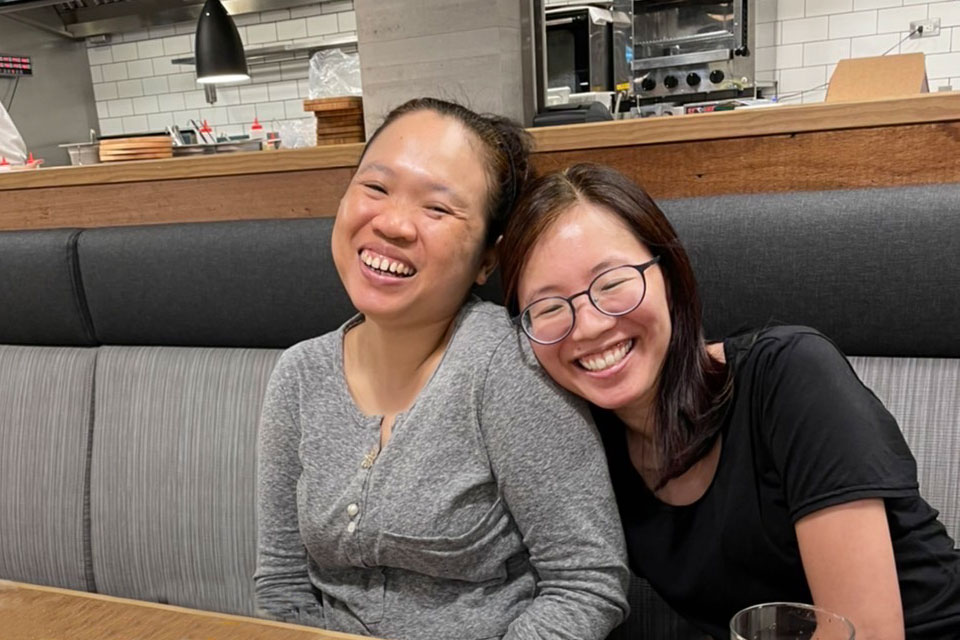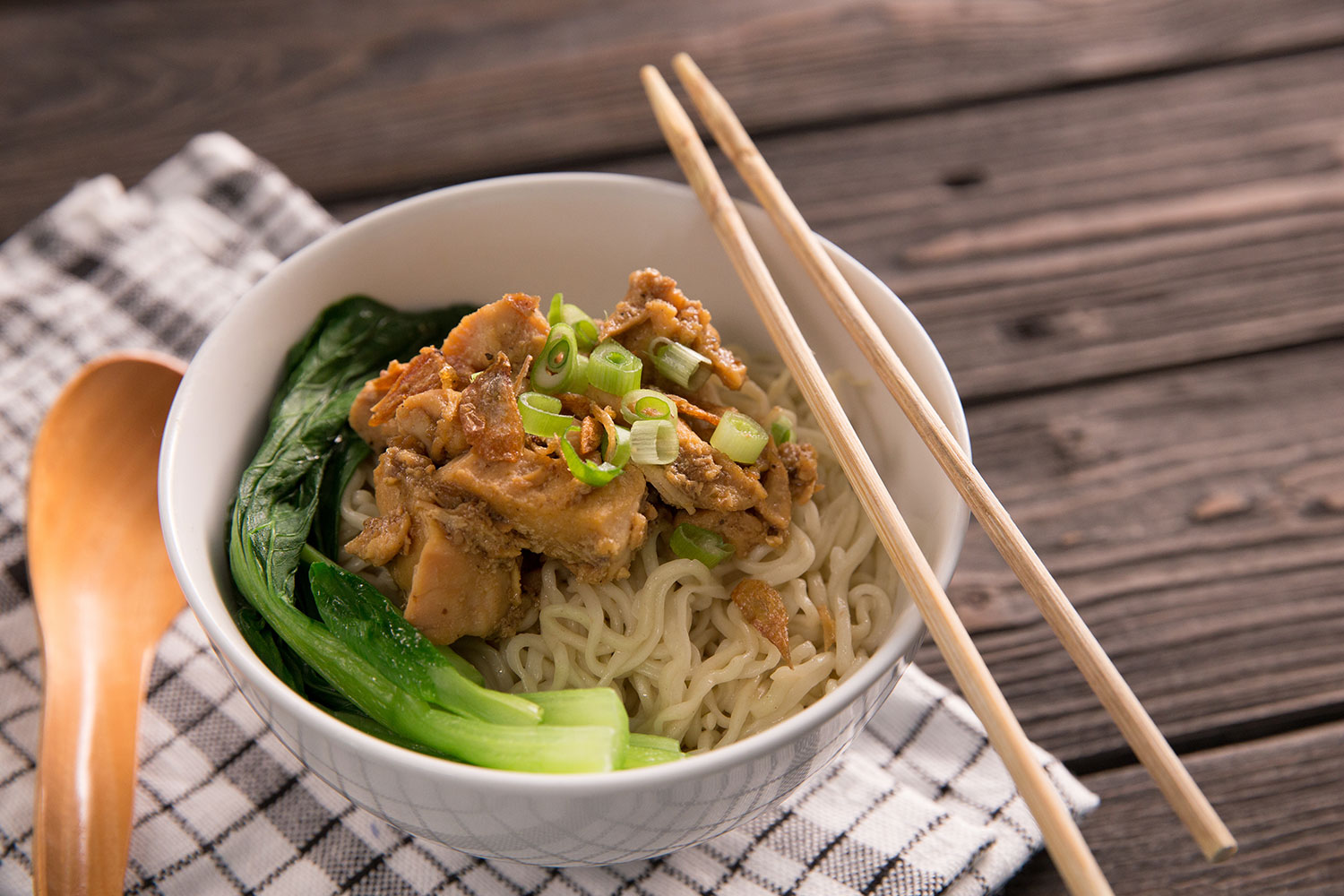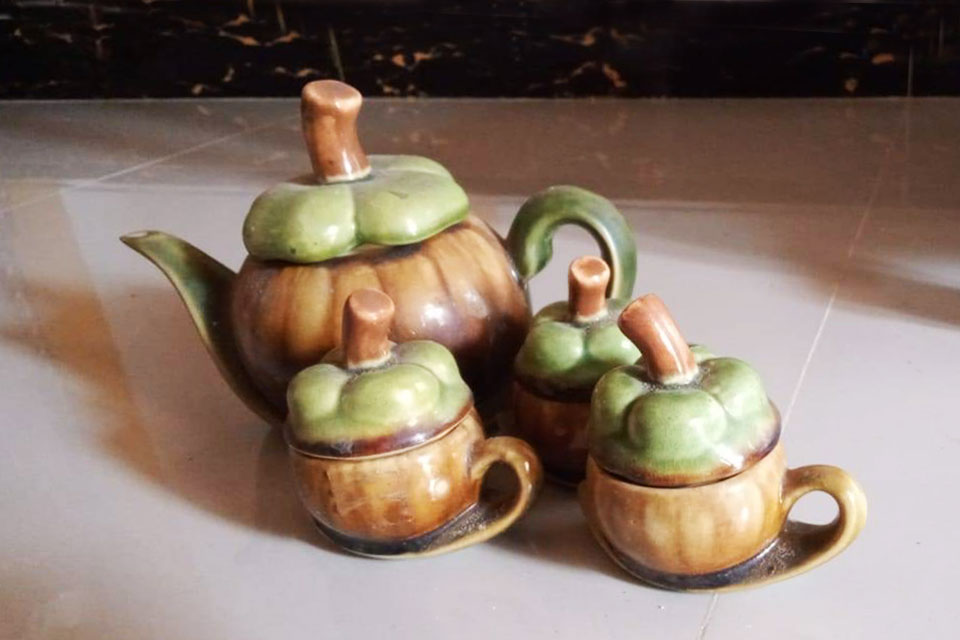Rokanah is a caretaker and domestic helper from Indonesia. Anah, as she is known to me and her friends, is very different from the people we’ve interviewed so far because she didn’t necessarily choose to be a curious explorer. She has been working abroad for about 17 years so she could provide a better life for her family.
I had the privilege to get to know Anah because she worked in my father’s home in Taipei, Taiwan for five years, first as a caretaker of my nonagenarian grandmother, and then one for my father after my grandma passed away. Anah and I became fast friends. I’m in awe of her resilience, work ethic, and courage.
Her journey is one filled with challenges and hardship, but there are also moments of lightness and joy. I am honored that she shared her story so openly with me.
Read our full interview with Anah below.
The following interview has been edited for length and clarity. The original interview was conducted in Mandarin Chinese and subsequently translated.
Growing Up
Where are you from?
I’m from a little village called Desa Mojo, which is part of Central Java in Indonesia.

I know that Indonesia is a very diverse country with sizable Muslim, Hindu, Christian, Catholic, and Buddhist practitioners. Did you grow up with people from other faiths?
I did. Growing up, I remember playing with children from other religions. I didn’t know what their faiths were, but I could tell that we were different. I don’t think any of us cared about those differences. We were all neighbors and classmates and got along quite well.
Sounds like a fun time! But that was back when you were a kid. Do you think people are less tolerant as adults?
Not that I can tell. I personally still keep in touch with some of my Christian and Buddhist friends. Many of us have left our hometown, but we still find ways to connect from time to time. I think people in Indonesia are generally very accepting of those from different religions.
Leaving Home
Did you already know you’d go overseas to work when you were a little girl?
Not really. I knew an older lady who worked overseas back when I was a kid. She’d already retired by then, but I heard that she was able to save up some money and build houses for her family because of her job. Still, it wasn’t something I aspired to do.
Did many of the kids you grew up with also end up working as caretakers and domestic helpers?
There are quite a few people in my village who left to work elsewhere. Many chose to go abroad; those who stayed in Indonesia went to the bigger cities like Jakarta for better job opportunities. I would say more people went out of Indonesia for work, though. For example, the Indonesian helper taking care of the grandma two floors below is actually a neighbor of mine back home.
What made you decide to leave your family and travel by yourself to a unknown place for work?
I’d just finished high school, and there was not much to do in my village. One of the girls I grew up with had gone to Hong Kong to work as a domestic helper; she told me that the salary there was a lot higher than any job I could find at home. I followed her advice and went to Jakarta to fill out an application form at a job placement agency.
New Country, New Job
Tell us about the first job you ever had overseas.
After waiting for a few weeks at the job placement agency in Jakarta, I got my first assignment: taking care of an elderly woman in Singapore.
I was given very basic instructions on what I would be doing and off I went.
What was going through your mind as you landed in a foreign country for the first time?
I was, obviously, very nervous. Luckily, the elderly woman and her family were also Muslim and traced their lineage back to Indonesia so there was less to adjust to culturally.
I was very young–around 17 or 18–so I think the naivete helped me cope a little bit. I was also at the age where I was very open to learning new things.
What was the experience like overall?
If I can be honest… I hated the experience. It was so terrible that it turned me against the country of Singapore altogether.
The grandmother whom I took care of was very kind to me, and I’m very grateful for that. But since she was fairly healthy and mobile, I ended up doing a lot of work for my employer (grandmother’s son) and his own family. I was forced to do all kinds of house chores and take care of my boss’s two children, too.
Is it legal to ask you to do things outside of the scope of your contract?
I don’t know. Probably not. But it happens all the time. I do laundry, cook, and clean on top of my caretaker responsibilities. I don’t mind, though. That’s what we all do. It’s part of the job.
It shouldn’t be part of your job, but let’s go back to that later. What else happened that soured your experience in Singapore?
Like I said, I wasn’t annoyed by the extra work. I just hated that I was mistreated. My boss’s wife was very mean and demanding. I’d wake up at around 5 am to feed formula to her newborn. Then, when the baby went back to sleep, I’d jump into the shower to get ready for my day. One day, while I was in the shower, the baby woke up and was crawling around in her crib. My boss’s wife threw a fit.
She marched into the job placement agency to accuse me of neglecting her child. There were no baby cams back then so I had no way to prove that I fed the baby first before taking a shower. She also accused me of stealing from them even though she was the one who forgot where she had kept her money.
Lastly, her aging father started to like me, and that was just so inappropriate and stressful. Because of all these factors, I cut my stay short and went home after about a year and a half.
Saudi Arabia, Dubai, and Taiwan
After Singapore, you decided to work in Saudi Arabia as a caretaker. Did you know any Arabic when you arrived?
Once I decided that Saudi Arabia was going to be my next destination, I bought a couple of Arabic-learning books in Jakarta to study. But mostly I learned on the job. I couldn’t understand much of anything when I arrived.
My employer and I mostly communicated via hand gestures. But since there are some similarities between the words in the Quran and Arabic, I managed to pick up the language fairly quickly. I was able to speak conversationally about 3 months into my stay.
After your time in Saudi Arabia, what was it like to work in Dubai?
Unlike the previous two jobs, my duties didn’t involve taking care of people. Instead, I was sent to a mansion that had 11 bathrooms and my job was to clean all these bathrooms and do laundry for the entire family.
There were 10-12 other foreign workers. The women were from Indonesia while the men were Pakistani, and every one of us had very specific tasks we needed to complete daily. It took me pretty much the whole day to finish cleaning all the bathrooms in and around the main house. Now that I think back, I actually prefer to take care of people. It’s more satisfying to see that I’m making a marked difference in their lives
You chose Taiwan as your next destination – quite a change! What were your first impressions?
Well, Taiwan was my first non-Muslim country so you can imagine that I suffered a little bit of a culture shock when I first got here. Additionally, I had to learn a very difficult, new language. Everything was just so different.
It took me around a full year before I could understand conversational Mandarin. Luckily for me, the people that I’ve met in Taiwan have mostly been nice so I was able to eventually adjust and get over my homesickness.

What was the most difficult thing for you to adjust to besides having to learn Mandarin?
Because a lot of people here don’t understand Islam, I didn’t dare to ask for time for my prayers until a year into my job.
Getting Married
When did you find time to get married?
After I finished my assignment in Taiwan, I went back to Indonesia to rest. This was when I met my husband through a mutual friend. It was basically love at first sight. We got married within a couple of months, and, a year later my daughter was born.
Now that you had a daughter, what prompted you to make the difficult decision to leave your family to work abroad again?
Well, I stayed in Indonesia for 4 years after I got married. Of course I didn’t want to leave my husband and daughter. But by the time my daughter was 3 years old, the money I’d earned before had pretty much run out.
My father had helped me buy land with some of my money. He also became seriously ill so I spent a lot of money on getting him the treatments he needed. Some of my money also went towards my sister and mom.
As a result, we didn’t really have much savings left, and I wanted to be able to provide a better life for my daughter.
I decided to return to Taiwan since my last experience was good, and I didn’t need to adjust to a completely unfamiliar place. I mean, I was in my 30s by this time so I wasn’t as enthusiastic about learning a new language and culture.
Holidays, Traditions & Foods
What are some of your favorite foods from the countries you’ve lived and worked in?
I love Taiwanese-style steaks! I love that it’s a steak platter with some noodles, egg, vegetables, soup and a buttered dinner roll. And the special black pepper sauce is delicious!
In Saudi Arabia, I really enjoyed kabsa, which is a rice dish with some vegetables, meat, and spices. I like it with chicken.
My favorite Indonesian dish is the mie ayam. It’s a simple noodle dish, but the soup is very flavorful. The noodles are topped with chicken. This is one of those dishes that seems easy and can be made at home but somehow always tastes better from a street vendor.

Are there any holidays or traditions from cultures you’ve experienced that stand out?
In Taiwan, the things they do after a loved one passes away was quite eye-opening. It only happened once when I worked in Southern Taiwan so maybe it’s not something city folks do. But I remember that after the old man I cared for passed away, his body was put in a casket and placed in the living room. His family would kneel in front of it wearing some sort of hemp-like robe and hat and cry. But during the funeral, they invited some scantily clad ladies and were dancing and laughing.* I was quite confused by that at first.
* Graveside or funeral strippers are exotic dancers, often young women, who sing and dance at a funeral or in a funeral procession. This novel tradition, not common in the big cities, is meant to attract a bigger crowd of mourners and to celebrate the life of the recently deceased.
Ah ok. Having graveside strippers is definitely a sight to behold. But like you said, it doesn’t happen everywhere so that must have been interesting to witness!
Do you bring any tchotchkes with you after you’re done with a job?
Yes! I brought home a replica of the Kaaba in Saudi Arabia, which is a building at the center of the most important mosque in our religion. From Dubai, I brought back a bunch of little glass cups that have little gold stripes.
Your father gave me some colorful cups that I’ve sent home. I also bought more cups and tea kettles from Taiwan.
I went with my employer to a wedding in Singapore, and I was gifted a set of really cute cups and a teapot.

Looking Toward the Future
How much longer do you think you’ll be working as a caretaker?
I’ll take on one more assignment here in Taiwan before I go home for good. My daughter is 10 years old now; I’ve missed a good chunk of her childhood so I want to be there for her before she gets too big. She is extremely smart and always near the top of her class with her studies. I want her to do better than I did and not have to work as a caretaker when she grows up.
My sister, who is twice-divorced, still needs some help financially. My mom is too old to really do any work so I also provide some assistance for her.
Therefore, I’d like to earn some more money for a couple of more years so we can be more secure financially before I call it quits on this career.
Would you want to travel abroad as a tourist after you retire?
If our finances allow, then my husband and I want to make a pilgrimage to the Kaaba in Mecca. It’s the holiest site for Muslims. That’s the only place I know I want to go at the moment.
In your opinion, what are some things that governments or regular people could do to help improve the lives and safeguard the rights of foreign caretakers and helpers?
When I was in Saudi Arabia and Dubai, I heard about quite a few caretakers who ran away because they couldn’t take the conditions at the homes they worked in and didn’t know where to turn. I think it would help for us to know that we have a safety net somewhere in the countries we work in.
Here in Taiwan, I know I can call 1955 for a 24-hour hotline if I encounter any problems. I’ve never called this number myself, though. And as long as my employer is good to me, I really don’t mind working long hours. I can find time during the day to take naps and rest.
As for doing more work than what’s in my contract, I’m not sure what can be done. It seems like it’s normal for us to take on more duties. I’ve even seen cases where some people were hired to take care of the elderly but ended up becoming nannies for the grandchildren of these elderly men and women. As long as no one is monitoring and punishing employers for breaking the terms of the contract, employers will just keep doing whatever they want.
Any last words for our readers?
Honestly, I believe that most people are good. Yes, I’ve been very lucky as I have seen and met more people who are kind than not in the last 17-18 years. Still, I trust that the more we get our stories out in the world, the more help will come our way. I remain optimistic for myself and people like me.



